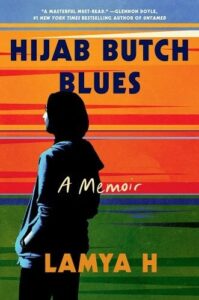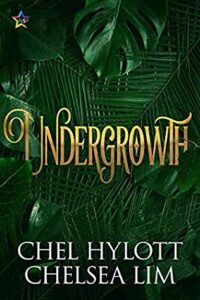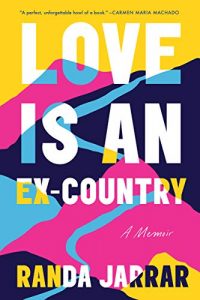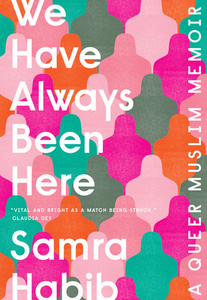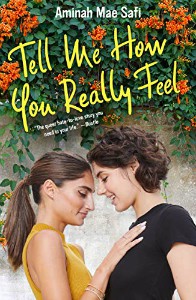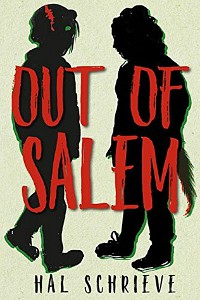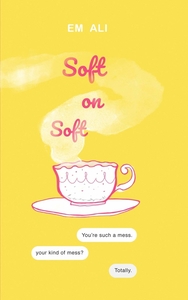Buy this from Bookshop.org to support local bookstores and the Lesbrary!
I have had Hijab Butch Blues by Lamya H on my list since it came out, and I am so glad my library hold on it finally came in. Lamya narrates a series of essays tying together her queer coming of age and her reconciliation of that with being a devout Muslim woman in a very satisfying way, providing deep insight into her personal journey and growth in both her faith and herself. Whether you are looking for a queer memoir to dive into, or a new perspective, or simply to hear the thoughts of someone who boldly references Leslie Feinberg’s Stone Butch Blues, this book will take you on a journey and leave you thinking by the end.
Lamya starts off with recollections of her childhood, when she started questioning what the Quran was saying, or not saying, about gender and how it lined up with her own feelings. When the adults in her life were unwilling to entertain her lines of questioning, Lamya started a habit of deep inner reflection and questioning that is apparent in every section. Arrayed in mostly linear fashion, the essays cover her realization that she was queer, her move to America in college, and her struggle to find either queer or Muslim community where she didn’t feel like the other half of her was being excluded. They link to specific sections of the Quran as she meditates on what they mean to her on a personal level. Lamya is painfully ready to dig into her own inner thought processes and reflections, including her own internalized biases and homophobia she had to recognize and overcome before she could move forward. Her struggles and her sincerity shine from every page, drawing you in and inviting you along with her through the process.
I love reading queer memoirs because a queer coming of age is a journey that can be so personal and yet so relatable to anyone else that has done it themselves. On paper, I do not have much oin common with Lamya beyond us both being queer. And yet, when she spoke of her friend questioning why she didn’t transition if she was going to keep becoming more butch—and her sound rejection of the idea—I felt such empathy and connection, because that was a thought process I had also gone through. The idea that we could be so different and yet so similar is heartwarming to me. Simultaneously, I gained new perspective and appreciation for Lamya’s circumstances and choices. This is a memoir that invites both learning and empathy. It also rewards personal reflection, since it is more than just a recounting of her life events. If you don’t normally read memoirs, Hijab Butch Blues is a book that will make you appreciate the genre more.
I believe that Hijab Butch Blues is going to go down as seminal work in queer narrative canon, and certainly as an eminently readable, unflinching memoir about reconciling faith, life circumstances, and an “authentically queer experience.” I cannot recommend it highly enough.

